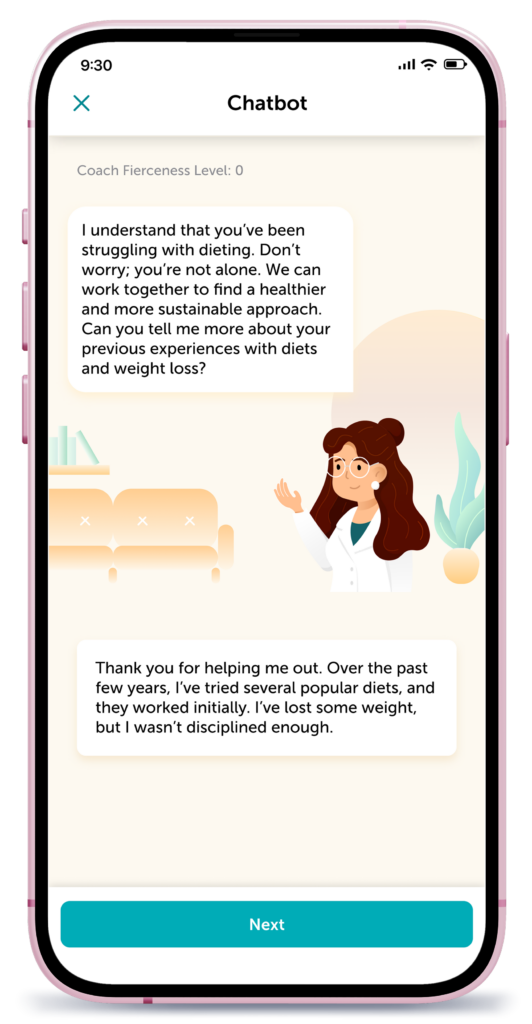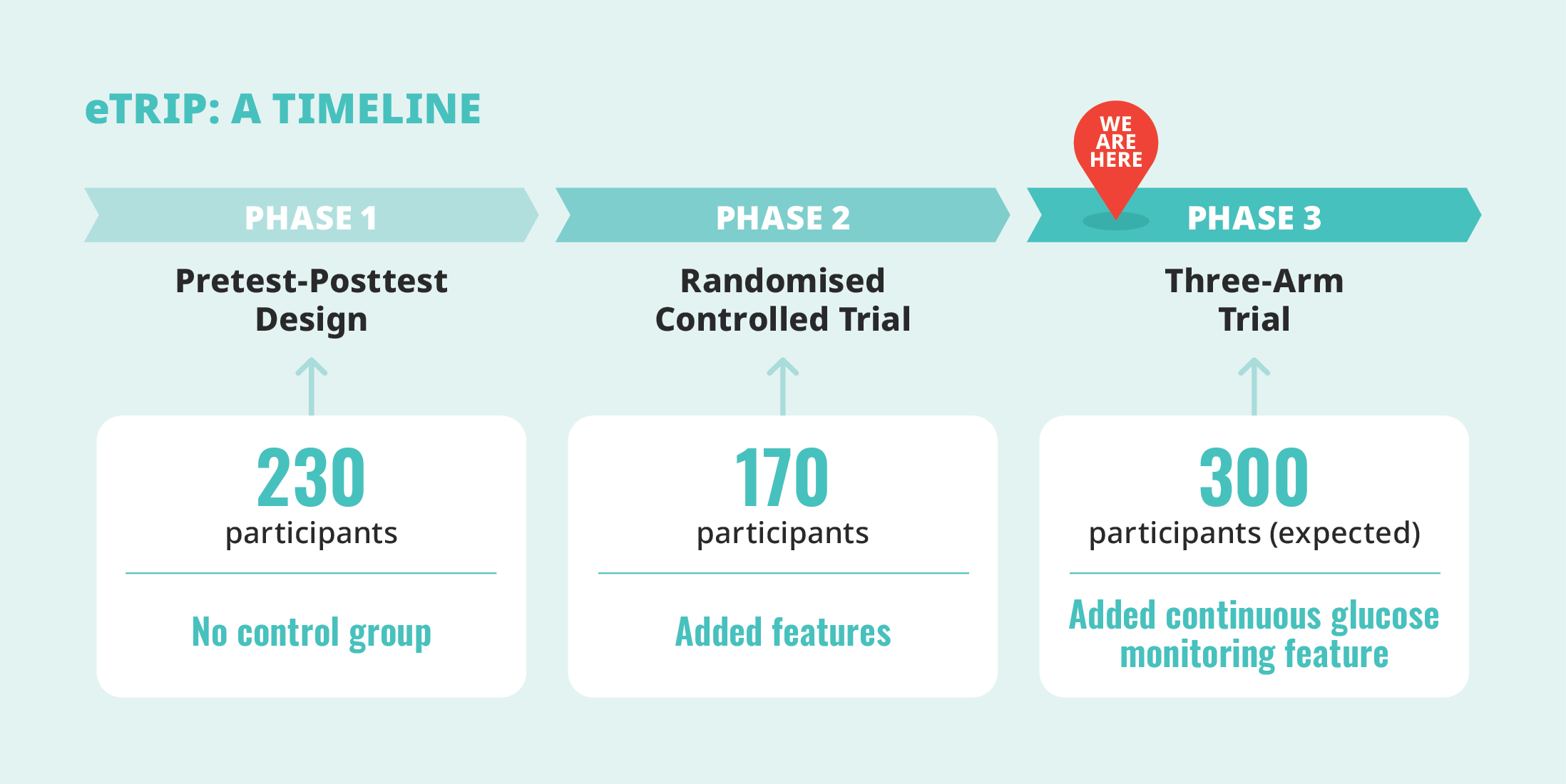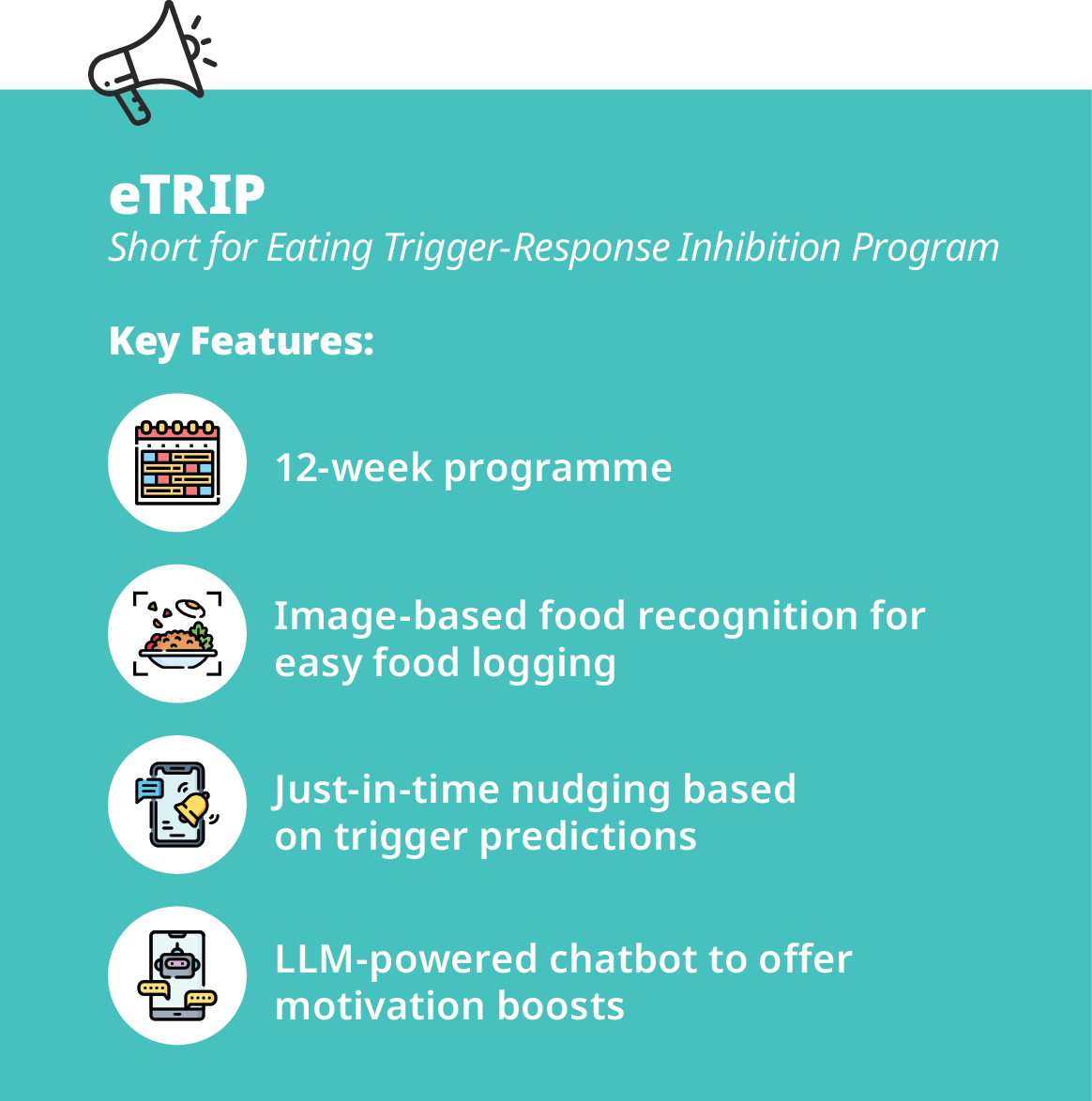
The National Population Health Survey 2022 revealed that 11.6% of Singaporeans were obese in the period from 2019 to 2020. This number is the highest since the last survey in 2010[1]. In 2021, 16% of students under 18 were overweight[2]. Dr Jocelyn Chew, Assistant Professor at the Alice Lee Centre for Nursing Studies (NUS Nursing), National University of Singapore Yong Loo Lin School of Medicine, shares her plan to tackle this weighty problem with an AI-powered app and some just-in-time advice.
“‘Eat healthily.”
“Avoid saturated fat.”
“Ask for more greens.”
Many of us have probably heard such advice for maintaining a healthy weight. “But if you think about it, these are all very generic tips which not many of us can follow—myself included,” shared Dr Chew. “Diet was always the part that tripped people up. While patients know that they have to control their diet, it’s not easy keeping to diet restrictions.”
This understanding dovetailed with Dr Chew’s research on improving self-care among heart failure patients and the root cause of heart failure and other cardiometabolic diseases—obesity. She explained, “Obesity is often the antecedent to the entire host of diseases like diabetes and hypertension. And while you can manage weight through other interventions such as physical activity and surgery, food intake remains one of the most challenging parts of lifestyle modification.”
An AI Health Buddy Joins the Fight

Dr Chew was thus inspired to come up with the Eating Trigger-Response Inhibition Program (eTRIP) app—with features such as image-based food recognition, large language model (LLM)-powered chatbot and a eating impulse trigger prediction and prevention system.
Acknowledging that consumers are spoilt for choice when it comes to weight loss apps, Dr Chew said, “People ask how eTRIP is different from everything else on the market. A simple answer would be the level of personalisation we offer—eTRIP’s AI-based algorithm is able to learn users’ behaviour and tailor the intervention accordingly.”
She continued, “Based on behavioural data, the app can predict when the user is likely to snack—say at 11pm while watching TV. The app then comes up with a personalised prompt at 10.55pm to remind them of their motivations for losing weight or strategies for managing overeating.”
Besides the eating impulse trigger prediction and prevention system, the in-app LLM-powered chatbot can also be programmed to suit users’ preferred communication styles. Dr Chew said, “The chatbot is not only handy when users need an extra boost in controlling certain cravings—users can even select the ‘profile’ they respond better to. For example, the chatbot will either use gentle words of encouragement or adopt a more forceful tone in the true ‘tough love’ style. An additional upside is that this AI health buddy is accessible 24/7 without any downtime.”
Suppression and Prevention
With the successful completion of phases one and two of testing for eTRIP, Dr Chew is already looking to embark on the third phase, which incorporates continuous glucose monitoring. She said, “Our hypothesis is that having real-time information on sugar levels could help change eating habits. So for instance, if I detect a spike in sugar level when having a slice of mooncake, that might motivate me to stop eating so many mooncakes.”
This phase will be a three-arm trial, involving a control group, a group that only receives the food logging feature, and a third group which receives the full suite of app features including glucose monitoring. Dr Chew explained, “We have designed the study in this manner to see if having the full suite of app features such as personalised nudging and glucose monitoring would be more beneficial than food logging only.”
But even before that happens, Dr Chew and her team are working to enhance the core features of eTRIP. She said, “Currently, our image-based food recognition feature means that users can simply take photos of their food without the hassle of manually logging down calories. However, there are many variables when it comes to food—from the ingredients and the portion to the amount of seasoning, cooking methods, etc. Then there’s also the fact that food don’t always look very different. That is why we are working on improving the accuracy of food identification and calorie estimation (there’s a 200 kilocalorie margin of error currently). At the same time, we make sure that users know that the app is not meant to be prescriptive. It is more of a guide to help them develop a sense for what’s healthy or in line with their goals.”
Looking to end the study sometime around December next year, Dr Chew is on track to start the third phase soon.
Seeing the Enemy for What It Is
Although eTRIP has passed the proof of concept and proof of value tests, Dr Chew is hopeful that the third phase results will validate eTRIP’s potential in helping with the management of other conditions requiring eating self-regulation, such as diabetes, hypertension and hyperlipidaemia.
“Even though obesity fits the criteria for chronic diseases, it’s still traditionally seen as a lifestyle problem in Singapore. As a result, patients with obesity often aren’t diagnosed and treated like a patient with chronic disease,” she said. “With eTRIP, it has scope to be further scaled up to adapt to users’ changing behaviour, or possibly combined with interventions like health coaches for patients who prefer a more human touch. Ultimately, I hope my research and eTRIP can help transform the way we view obesity and contribute to lowering obesity rates in Singapore in five to 10 years down the road,” she said.
Dr Chew is collaborating with the National University Health System (NUHS) to roll out a population-wide obesity programme that incorporates the app.


[1] https://www.channelnewsasia.com/singapore/obesity-rate-rises-highest-level-2010-moh-urges-public-exercise-and-adopt-healthier-diet-2322321
[2] https://www.moh.gov.sg/news-highlights/details/annual-prevalence-of-obesity-for-children-aged-below-18-over-past-five-years-their-profile-and-assessed-effectiveness-of-preventive-measures



